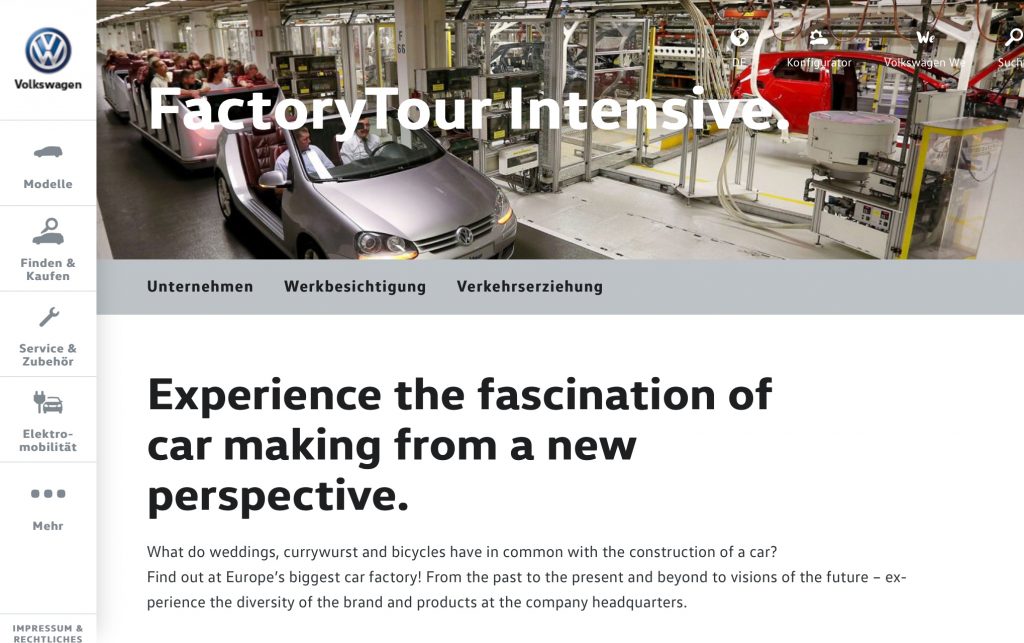45 percent reduction in environmental impact by 2025
The Media information NO. 333/2017 claims: “Volkswagen Group raises its environmental targets: 45 percent reduction in environmental impact by 2025”. Unfortunately it does not explain how to find either historic or current environmental targets.
There remain serious doubts about the correctness of this Media Information.
Verification of VW environmental targets
One may try one’s Luck at volkswagen.de and search for content relating to the environmental management. The result is unbelievable: this website does not support the english language in any reasonable way.

So english speakers won’t find the environmental declarations of the volkswagen production sites which are listed here (german only). They would tell something about current production related targets.
At volkswagenag.com one may find much content related to sustainability. There is a page dedicated to sustainability reporting. But it covers the sustainability report 2017 only. Nothing else. Without any reasonable access to historic reports. Further surprise: The sustainability report 2017 refers to the environmental goals without naming them.
Spoiler: Environmental Targets have been more ambitious in the past
There is a document called “Umweltziele der Technischen Entwicklung” (= Environmental objectives of technical development) which gives a precise production related target: We are reducing energy consumption, waste, emissions, water consumption and CO2 by 25% by 2018 relative to 2010. (“Wir senken den Energieverbrauch, das Abfallaufkommen, die Emissionen, den Wasserverbrauch sowie CO2 um 25 % bis 2018 bezogen auf 2010.”)
There are various indications that Volkswagen already achieved (or over-achieved) this production related target. VW took 8 Years to reduce 25%. Media information NO. 333/2017 gives the new target: 45 percent less energy, CO2, water, VOC emissions and waste compared with the baseline 2010. But 25% of this 45% already are achieved. So they want to take 7 more Years to further reduce pollution by 20%. This sounds reasonable. But it does not sound extremely ambitious.
Open Questions
are the following product related environmental targets still valid:
- Support of fuel-efficient driving (“Unterstützen kraftstoffsparender Fahrweisen”), published December 2008 in Umweltgrundsätze Produkt. This means obviously: the product shall not fail, the brakes shall not rot because of a fuel-efficient style of driving.
- “best-in-class fuel consumption in the driving cycle and over the vehicle’s service life”. published in the Sustainability Report 2014. This means: Fuel consumption in customer operations is seen as an independent goal. This recognizes that optimizing for the NEDC test does not automatically lead to optimal fuel consumption in real operation.
If Volkswagen skipped these product related environmental targets, I would call the remaining ones not ambitious at all.
And let’s not forget to ask:
- (How) Are the environmental targets tracked? In particular: How does Volkswagen evaluate or estimate Fuel consumption in customer operations?
- Are they achieved?
- Which cars support fuel-efficient driving? The brakes of which cars will rot and fail as a consequence of fuel-efficient driving?
